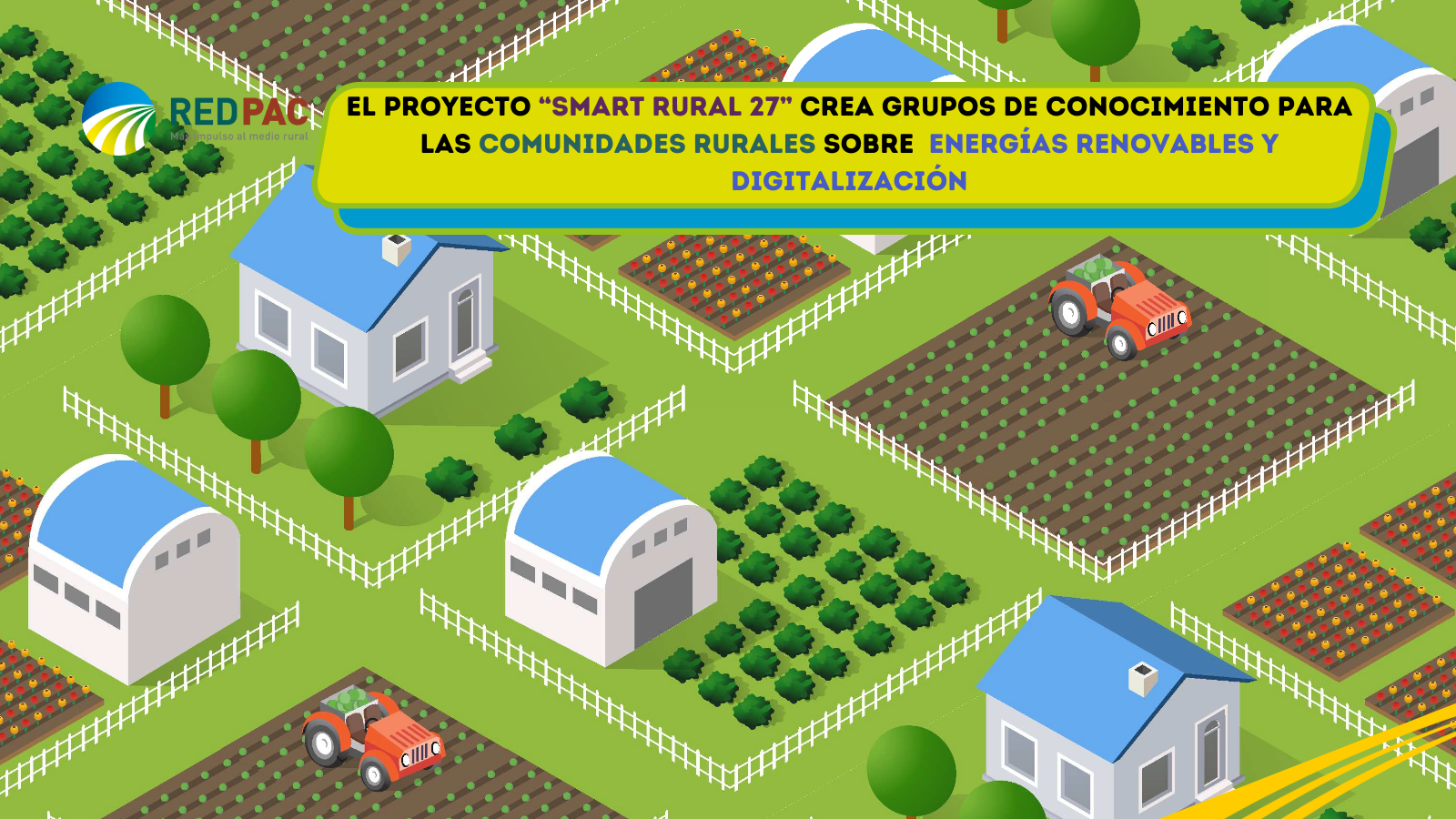
26 de April de 2023
Dinamización rural
Rural communities can join knowledge groups as "beacon communities," "learning communities," or "follower communities."
- The "Smart Rural 27" project aims to implement new CAP policies in Member States to facilitate the emergence of "smart villages" throughout the European Union.
- The Smart Rural 27 project is currently launching the “European Smart Villages Pilot Observatory”
- It is also launching knowledge groups on topics to be applied in smart towns.
The European Smart Rural 27 project has two objectives:
- Improve support for existing smart villages
- Facilitate the conversion of rural communities in Europe into smart villages .
In fact , Smart Rural 27 is a continuation of Smart Rural 21 , but adapted to the new CAP period. Specifically, Ansó was the only Spanish town selected by Smart Rural 21 to become a "smart village." Currently, this town—recognized as a best practice by the National Rural Network ( RRN )—is in the process of transitioning to become a smart village .
To facilitate understanding of the key elements that must govern smart communities, the Smart Rural 27 project has organized knowledge groups ("clusters") on renewable energy and another on digital services. The knowledge clusters aim to support the exchange of practices, peer learning, and the development of new capabilities.
Rural communities can join knowledge groups in three different ways:
- As “lighthouse communities”: they already develop smart solutions that others can learn from
- As “learning communities”: they are becoming smart villages, but they need to acquire new ideas and skills
- As “follower communities”: they only want to learn about the topics of that specific “cluster.”
Renewable energies and digitalization
The first Smart Rural 27 knowledge cluster on “Local Energy Transition and Renewable Energy Communities” launched in March 2023. It discusses energy sources (solar, wind, water, biomass) and how to achieve energy self-sustainability, as well as the use of digital technologies, energy poverty, national legislation, and available funding sources. It involves two beacon communities: Stanz (Austria) and Häradsbäck (Sweden) .
In subsequent sessions, a work plan on peer-to-peer learning opportunities, including cross-visits, knowledge sharing, and capacity building, will be shared with members. The cluster's work is expected to continue until October 2023.
The second knowledge cluster focuses on " Digital Services " and launched in April 2023. This cluster seeks to apply digital technologies to address the challenges of rural communities: access to public services, care for the elderly, access to employment, strengthening social cohesion and volunteering, etc.
Interested rural communities can contact smart-rural@e40.eu .









